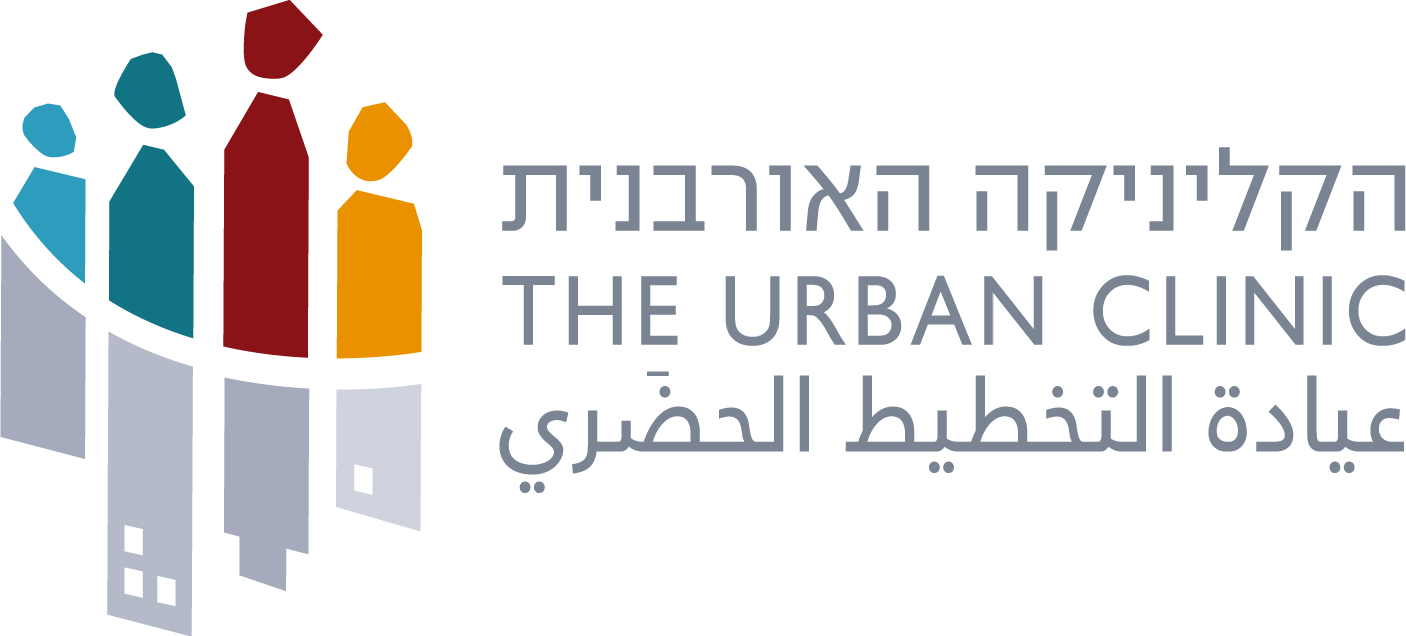Teaching and list of courses:
Our base at the Hebrew University of Jerusalem grants access to over 150 MA graduate students in Urban Planning, and an additional 60 graduate students from other departments who participate in individual courses. Our courses expose students to a clear progressive agenda, pragmatic tools, and professional networks for social change. Many of the students choose to follow the courses with applied research seminar papers, guided by any of five Urban Clinic senior staff, occasionally leading to employment and funded projects. Teaching is also a great way to learn and develop networks: our courses typically also employ outstanding former students as Teaching Assistants, and we often recruit leading professionals with a spatial justice orientation to co-teach in our courses and in the Urban Studies program more broadly.
Following is the list of courses, presented separately in order to gauge the numbers of participants
- Community Planning Internship with the Urban Clinic: This is the Urban Clinic capstone field-work course, in which each of the 10 – 15 students per semester works intensively on an applied project with guidance from a planning practitioner, as well as from a member of the Urban Clinic staff. Our key partner is the network of about 40 Jerusalem community planners and their supervisors: they suggest projects, connect students to people and places and make sure that the projects have real practical applications. Final student projects are presented to a wider circle of about 50 invited external professionals and academics, people who can and sometimes do help these ideas become realities. 2019-2020 student projects are linked here.
- Planning in Arab Towns: Taught by Urban Clinic Research Fellow Dr. Enaya Banna and funded with a Savran Family grant, the course exposes about 20 urban planning students annually to the politics and practice of planning in Arab towns in Israel. For many of the mostly Jewish students, the field trip to the Wadi Ara area is the first time that they have looked and walked professionally in an Arab Israeli town.
- Housing Policy and Urban Regeneration: this annual course was the first of its kind in Israel, examining housing policies from a spatial justice lens. At least ten of the nearly 100 graduates over the years are now leading work on these topics in the Ministry of Housing, the Urban Regeneration Authority, city government and NGOs. By supporting a professional co-teacher, former graduate Tal Alster, we are able to work intensively with student teams on ‘translating’ good practices internationally for the Israeli context.
- Urban Planning Institute Professional Practice Seminar: The Urban Clinic has taken responsibility for the Urban Planning Institute ‘seminar’, with required attendance by all 150 MA students, usually about half each year. We bring seven leading practitioners on a changing annual theme, and students reflect on the spatial justice and other implications of the lecture on the theme. The theme for 2020/2021 is Urban Regeneration, and our engagement emphasizes the perspective of vulnerable populations, and tools for better outcomes. Previous years are linked here for public access.
- Spatial Justice and Cities: this English-language course brings together about 20 international development studies (GLOCAL) and urban planning students, who together investigate international good practices in social urbanism, and their potential adaptation in Israel. We are looking to produce a booklet and Zoom recorded conference of the most outstanding projects.
- Project Based Learning for Jewish and Palestinian Students: Placemaking at the Mount Scopus campus: New for 2020-2021. The Urban Clinic was asked to lead one of four PBL courses offered through the Minerva Centre for Human Rights, aimed at shared learning among 20 Jewish and Arab BA students. We are also providing a scholarship for a recent East Jerusalem graduate to work as the course Teaching Assistant.
- Child-Friendly Cities: Over 100 graduate students have now taken this course in iterations at BGU, TAU, Technion and at Hebrew University. Several of the student proposals for interventions have been further developed for implemention. We have developed an English-language guide to the course (here) and are looking to adapt it with an international network of academics in the field.
- East Jerusalem - Planning and Policy: About 60 graduate students across the University were exposed to the complex issues of East Jerusalem, in this course coordinated by the Jerusalem Institute for Policy Research in close cooperation with the Urban Clinic. A recent graduate from EJLM received an Urban Clinic scholarship as the course Teaching Assistant.
- Studio in Strategic Planning: Each year we contract with a community planner in a different Jerusalem neighbourhood, to work with the 20 MA students in preparing a ‘current status’ report and developing spatial interventions to meet strategic goals for the neighbourhood. It is one of the few MA courses in which the students work together on a real place, learning to interview, observe, and understand the interests of people from different cultural and religious backgrounds.

